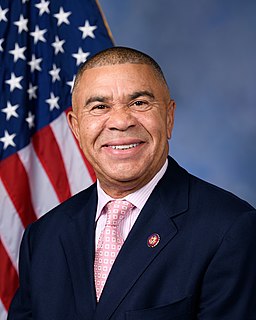A Quote by Ajit Pai
It's vital that low-income Americans have access to communications services, including broadband Internet, which Lifeline helps to achieve.
Related Quotes
Broadband connections allow us to access more robust types of content, services, and applications - video chat versus email, or live streaming versus chat, for example. Yet if we look beyond our own personal use, we can see that broadband Internet access is not merely a convenience: it is a powerful force for social change.
In the Internet world, both ends essentially pay for access to the Internet system, and so the providers of access get compensated by the users at each end. My big concern is that suddenly access providers want to step in the middle and create a toll road to limit customers' ability to get access to services of their choice even though they have paid for access to the network in the first place.
High-speed Internet access won't stop future superstorms and it won't solve all the unfairness that low-income New Yorkers face. But with strong alliances between community members, local nonprofits, businesses and technology experts, it will bring affordable, local innovation that helps us build stronger, fairer and more resilient communities.
































